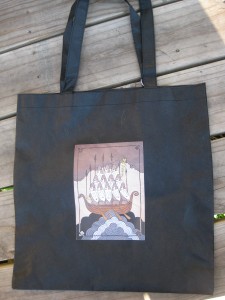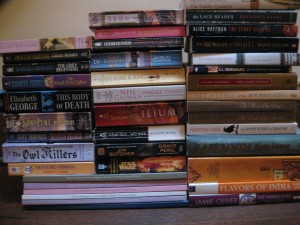…Or Kalamazoo for short. Just got back yesterday evening after missing it for the past two years. So of course I had to hit the book exhibits, hard. And I found some treasures, new and used. I got Bill Klingshirn’s edition of Caesarius of Arles: Life, Testament and Letters — not a bit too soon because I am teaching that tomorrow. I also got a translation of Aldhelm’s Prose works, and the poetry is coming in the mail, as is Chris Wickham’s The Inheritance of Rome: A History of Europe from 400 to 1000. I found two books from my doctoral advisor, Jocelyn Hillgarth; one of his oldest, The Conversion of Western Europe 350-750, and his latest, The Visigoths in History and Legend. Kate Cooper’s The Virgin and the Bride, Susanna Elm’s Virgins of God (yes, you are detecting a research theme), Leah Shopkow,’s History and Community, another former teacher, Edouard Jeauneau’s Rethinking the School of Chartres, Matthew Bailey’s translation of Las Mocedades de Rodrigo — the Youthful Deeds of the Cid (because I am tired of taking it out of the library), and Bonnie Mak’s How the Page Matters — which has perhaps the best “medium is the message” cover ever — round out the total. But I am perhaps fondest of all of the tote bag I bought fro the University of Toronto Press. Look Ma, no horns!:


